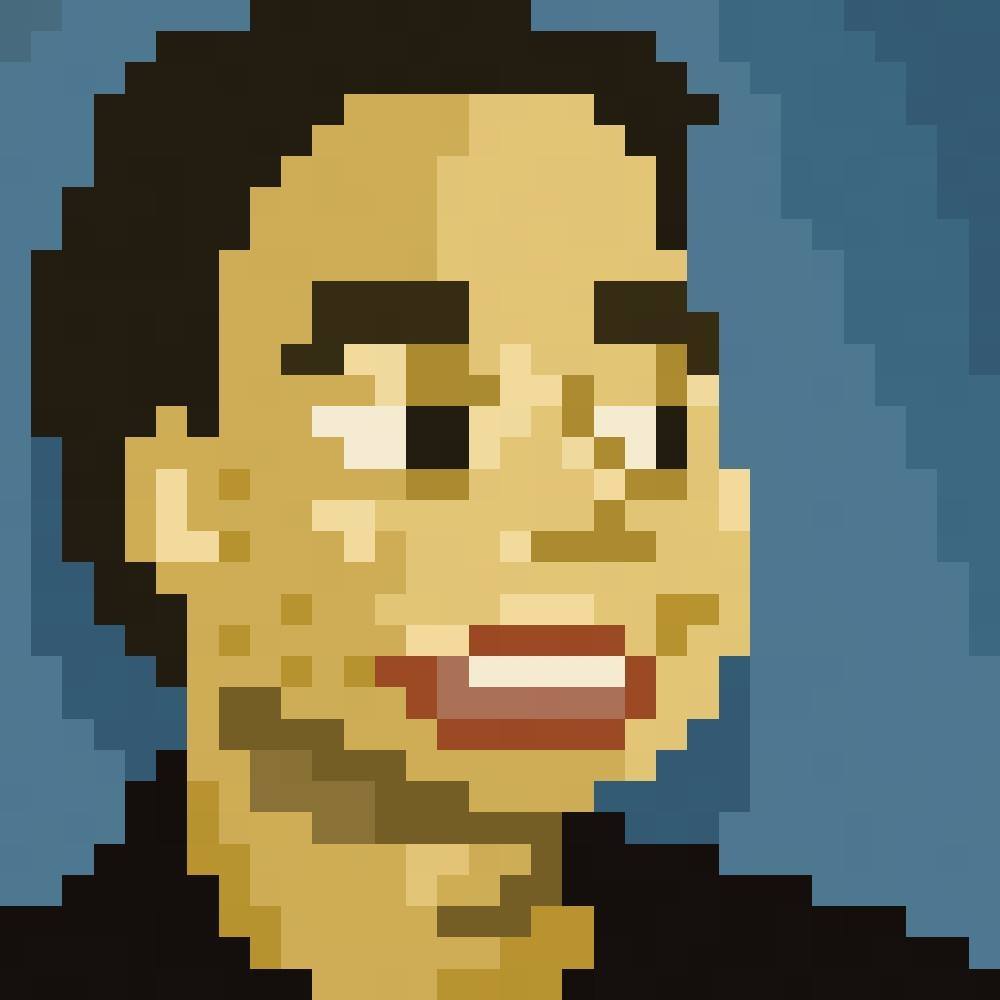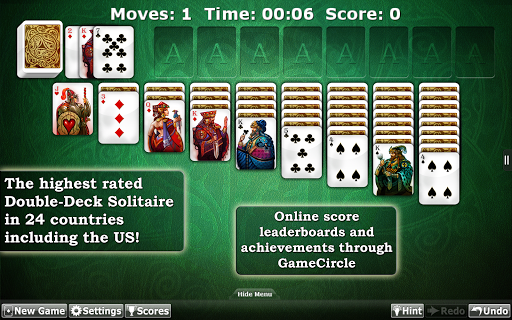A popular card game for iPad and Android tablets.
Apple iPad | Apple iPhone | Google Android | Amazon Fire
Objective
To recreate the popular Windows game, Solitaire, for the iPad, Android, and other touch-screen mobile devices.
Description
Solitaire Double-Deck HD is E4 Software’s first iPad and Android tablet game. It takes the classic Windows game, and polishes the controls and aesthetics for the touch-based mobile devices. In addition, this variation adds 3 different game modes: Double-deck, which uses two card decks, Single-deck, and Half-deck, which contains only 2 suits of cards.
The game was created by Unity 3D, with a three-man team.
Controls
Solitaire Double-Deck HD allows players to move the card in one of two ways. First, one can drag the card on top of others, giving them the maximum amount of control. Second, the player can simply tap on the card; the card will intelligently move towards a valid deck (a Quick-Tap). The latter allows one to play as fast as possible.
As an added extra, if there are any cards that can be moved into the upper decks, one can double-tap the background to move them up automatically.
Development
The development of Solitaire Double-Deck HD started almost exactly when I joined the E4 Software company. The goal was to create a Solitaire game more polished than any other on Apple’s AppStore. As such, most control inspirations came from playing other Solitaire games on the AppStore, and evaluating what the highlights of each app were, and what was the app’s weakness. The inclusion of Double-deck and Half-deck mode, though, were our original ideas (although, I admit, Solitaire City got the double-deck faster on the market).
The application was created in an iterative style. An incremental build was created at the end of every week, and we would invite a random waitress working at a local restaurant to play the game. Later, we’ve added a private webplayer to allow those interested to play online. This build was, of course, updated on a weekly basis as well.
The artworks were outsourced to two artists: one local, and one foreign.
In total, the game took 36 weekends to develop, or 9 months, ignoring weekdays.
Results
Due to the necessity of having a high-quality game competitive to those on the market, the application was frequently delayed from the original 3-month schedule. Our largest bottle-neck, this time, were the outsourced foreign artist, who was unfortunately slow to respond. Fortunately, he did produce the requested work in excellent quality.
Regardless, most playtester have proclaimed that our game was the best version of Solitaire they have ever played. The magical Quick-Tap and smooth animation proved to be popular among this audience.


